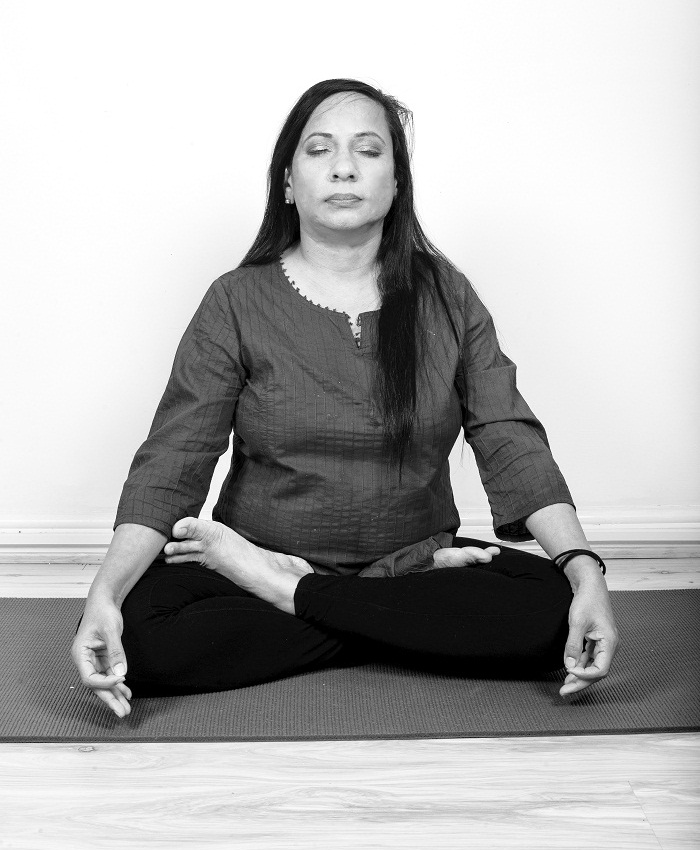As I write, I am on day 2 of the Global Mindfulness and Meditation Summit Online. Day 1 started with 10 minutes of guided meditation by Andy Hobson mindfulness teacher at the Centre for Mindfulness, Research and Practice at Bangor University, UK
The first session starts with an interview with Richie Davidson, the author of the best selling book ‘Altered Traits’ on how it changes your Mind, Brain and Body for the better proven scientifically. It is an interesting 1-hour session and the main takeaway from this session are
- Interestingly retreat practices are more effective than practices at home.
- It helps us to focus our attention and see the smaller detail
- There is a benefit eve during sleep for long term Practitioners
- The after effects last for short time initially and then become more enduring.
- There are three types of meditation awareness, loving, kindness and deconstructive. The first two are practiced more frequently than the latter.
- Another interesting observation was that in Western culture like to put a lot of effort into whatever they do and just letting go off the effort while meditating will lead to success
The last advice was that the mind and the brain are the most precious part of human and if we can integrate it into our daily lives like brushing our teeth then the world will be a greater place to live in.
There are other great gurus of the meditation and mindfulness world Alice Walker, Noah Levine, Kate Johnson, Eckhart Toll, Kelly McGonigal, Judson Brewer, Amishi Jha, Dan Harris, Vidyamala Burch, Elisha Goldstein, Shefali Tsabary, Daniel Siegel, Chris Willard, Daniel Goleman, Chade-Meng Tan, Diane Musho Hamilton, Alanis Morissette, Michael Gervais, Krishna Das, The Sakyong, Leo Babauta, Ethan Nichtern, Ruth King, Shinzen Young, Pema Chodron, Thic Nhat Hanh, Jon Kabat-Zinn, Jack Kornfield to enlighten us on various diverse topics such as how science is relevant to it’s practice, Chanting as a meditative path, The key to habit change, Mindful of Perspectives in Communication, he Benefits of Mindfulness for Leadership and Emotional Intelligence
I will try to listen in as much as possible over the coming days and summarise the discussions on the site.
My Journey…
I have been trying to practice meditation on and off for a number of years but had not found much success, but things have started to improve recently and it got much better when I attended a five-day retreat (Sharpham) in Devon during the New Year period.
I always console myself in this way, ‘I have a mind obesity and I have to work harder and longer to get results!’
The retreat in Devon was so refreshing for my body, mind and soul. I’ve found that there’s such a warm camaraderie with your fellow meditators. Good food with great teachers and staff amongst outstanding natural beauty hardly went amiss. I will write more about my experience in one of the Blogs soon.
A Guide on HOW to MEDITATE by Sadhguru
Sadhguru says, “The reason why most people who have tried meditation have concluded that it’s very difficult is because they are trying to do it. You cannot do meditation but you can become meditative.”
ause they are trying to do it. You cannot do meditation but you can become meditative.”
Sadhguru: The moment we utter the word “meditation,” there are all kinds of misconceptions about it. First of all, the English word “meditation” doesn’t mean anything in the sense, if you close your eyes and sit, in English we call it “meditation.” You can sit with your eyes closed and do many things. There are many dimensions. You can do japa, tapa, dharana, dhyana, Samadhi, shoonya. Or you might have just mastered the art of sleeping in vertical postures!
So what is this thing that we call as meditation? Generally, we assume that people are referring to what is known as dhyan or dhyana. In that context of referring to dhyan as meditation, it is not something that you can do. Nobody can do meditation. The reason why most people who have tried meditation have come to the conclusion that it’s very difficult or impossible is because they are trying to do it.
You cannot do meditation but you can become meditative. Meditation is a certain quality. It is not a certain act. If you cultivate your body, your mind, your energies and your emotions to a certain level of maturity, meditation will naturally happen. It is just like if you keep the soil fertile, if you give it the necessary manure and water and if the right kind of seed is there, it will grow and bloom into flowers and fruits.
Flowers and fruits will come out of a plant not because you want it, but simply because you created the necessary, conducive atmosphere. Similarly, if you create the necessary atmosphere within yourself, on all the four dimensions of who you are, then meditation will naturally flower within you. It is a certain fragrance that one can enjoy within himself.
Meditation and the Mind
The mind does not like meditation because if you keep the body still, the mind will also naturally become still. This is why so much stress has been laid in yoga and asanas. If you just learn how to keep your body absolutely still, then your mind will also become still. I want you to just observe yourself and see how many unnecessary movements your body makes when you stand, sit or speak. If you look at your life, you will see that more than half the time is taken up in these things that you yourself don’t care for.
If you keep the body still, the mind will slowly start collapsing and the mind knows that it will become enslaved if it allows this. The main aspect of meditation is, right now your mind is the boss and you are the slave. As you meditate and become more meditative, you will become the boss and your mind will become the slave and that is how it should always be. If you don’t know how to keep the mind as a slave, it will put you through all kinds of endless suffering. If you allow the mind to rule, it is a terrible master. But as a slave, the mind is wonderful – it is a miraculous slave.
ALSO CHECK: Pranayama or breathing techniques for blissful living

